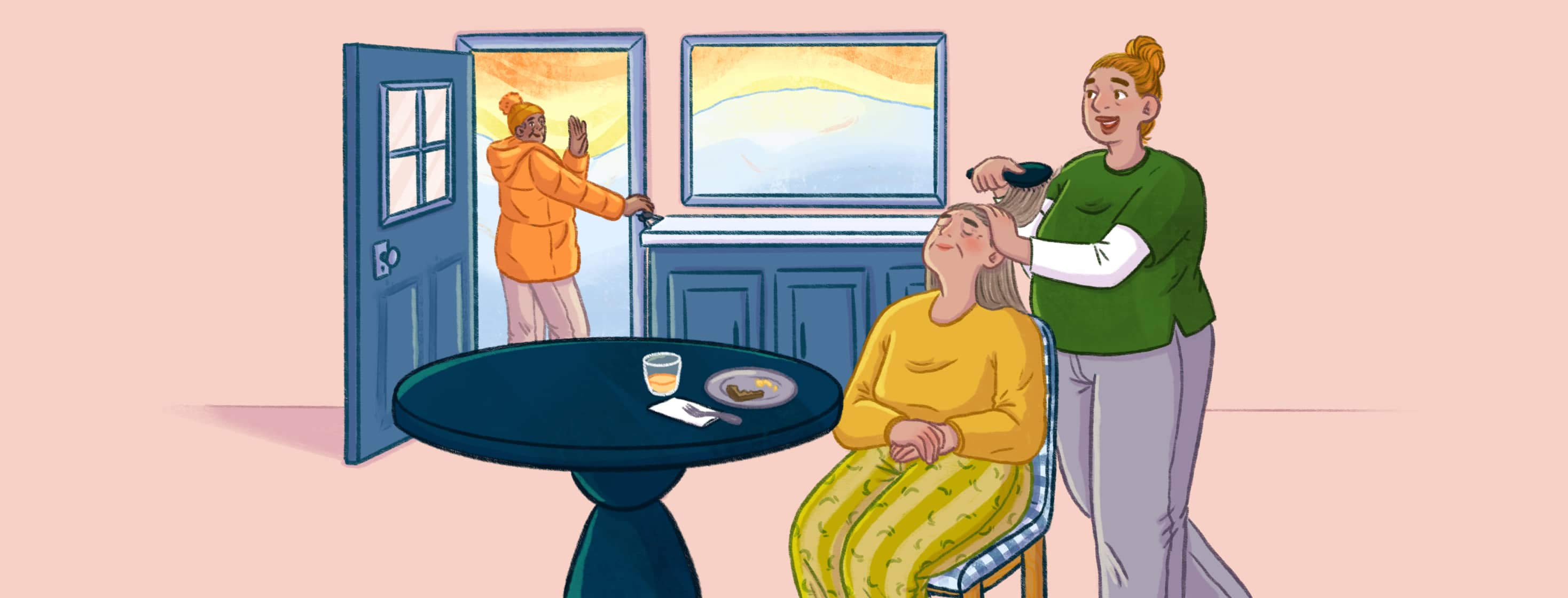Home Care in Late-Stage Alzheimer's
If your loved one has entered the later stages of Alzheimer's disease, hopefully, you already have home care in place, but if not, it's never too late to start.
As you know, your loved one's needs will only increase as the disease continues to progress. And if your loved one still lives at home with you or someone else, it is essential to have help with their care.
Whether you have home care already or haven't even started the process yet, you may be wondering what home care looks like in the later stages of Alzheimer's. This may vary depending on your loved one's abilities, but I would like to share my family's experience with our home health aide.
Beginning home care
When we initially started home care for my mom, she was in the moderate stages of the disease. We started with just a few hours a week, providing mostly companion care but increased those hours as soon as my mom became more comfortable with the aide. We also began adding more responsibilities for the aide as my mom became more comfortable with her.
By the time my mom entered the later stages, we were fortunate to have our aide for eight hours a day, five days a week. She actually let go of all of her other clients so she could care for my mom full-time. This is not always possible — especially when the aide works for a home care agency like ours did, which is why I said that we were fortunate to have one aide dedicated to my mom for forty hours a week. We also had a few other home health aides who would provide weekend coverage, which was usually about four to five hours a day.
Home care during the week
During the week, my dad would get my mom up in the morning, take her to the bathroom, and then have her sit in her wheelchair until the home health aide arrived.
Once she arrived, the home health aide would take my mom into the bathroom to brush her teeth, bathe her, and get her dressed. There was no tub or shower in the downstairs bathroom, so the aide would give her a sponge bath using rinse-less body wash. About once a week, she would wash my mom's hair using rinse-less shampoo caps.
My mom was washed up and dressed, the aide would bring her back into the family room and feed her breakfast. After breakfast, they would sit and watch TV or listen to music for a while. If the weather was warm, they might sit outside on the screened porch or go for a walk in the neighborhood, with the aide pushing my mom in her wheelchair.
Then, the aide would prepare and feed my mom lunch. They might go for another walk in the afternoon to feed the ducks at the pond. Before she left for the day, the aide would take my mom to the bathroom one more time and change her into her pajamas for the night. That way, my dad didn't have to worry about doing it himself at the end of a long day and before what might be a long night.
Additional duties during the week
The aide would also do some light cleaning and laundry throughout the day, and she would prepare something for dinner before she left for the day. Throughout the week, she might assist with doctor appointments or other household chores depending on what my dad needed help with. She also kept my mom entertained by singing songs to her or doing an activity with her.
Home care on the weekends
My dad usually bathed and dressed my mom on the weekends since she wasn't as familiar with the weekend aides. The home care agency would often send new people because the staffing was lacking on the weekends.
My dad would often stick around the house since he didn't know the aide and wasn't comfortable leaving my mom with them for the day. It was still helpful to have some coverage for the weekend.
Home care in late-stage Alzheimer's
Home care looks different depending on the stage of the disease and your loved one's abilities. Regardless, a home health aide is there to help you with the daily activities of caregiving and anything else you might need some assistance with.
Hopefully, this gives you a better idea of what to expect from home care in late-stage Alzheimer's.

Join the conversation